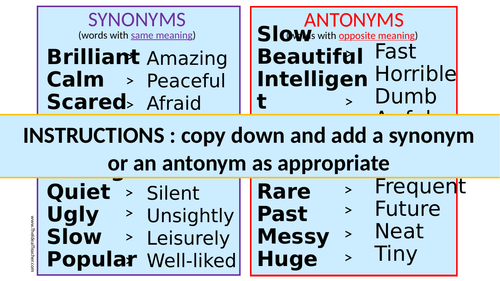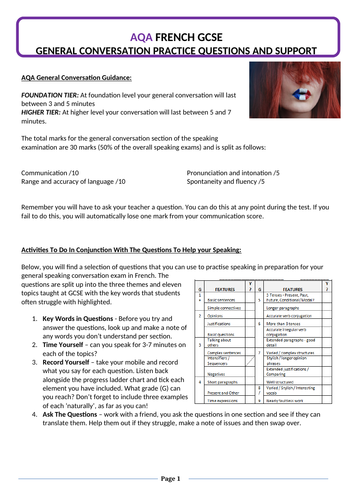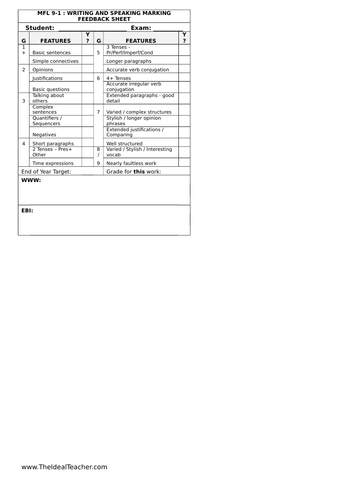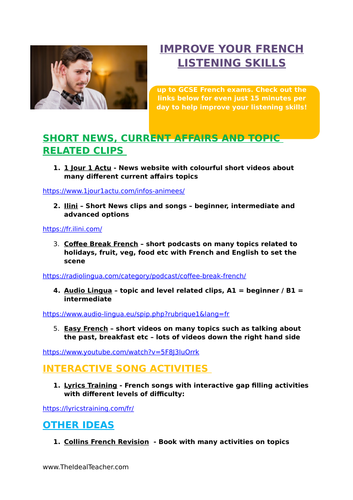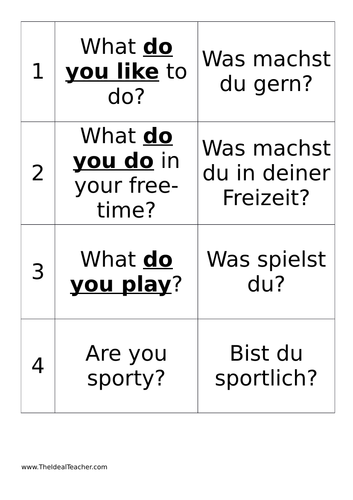Theidealteacher1's Shop
I'm a French, German and English teacher and love creating useful resources for my students to use in the classroom, as well as for homework tasks, to help them love languages and develop their language skills at the same time. I enjoy sharing these resources with other teachers. Some of my language resources are free, but as they take me a long time to make, I do charge a small fee for my some of them. I hope you enjoy using my MFL resources in your language classroom!

